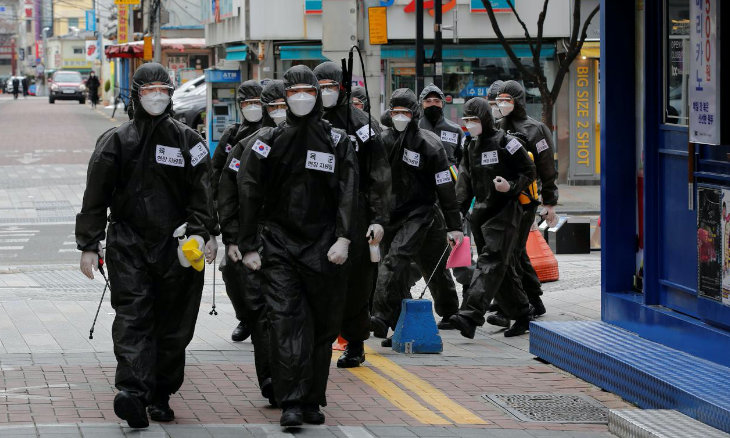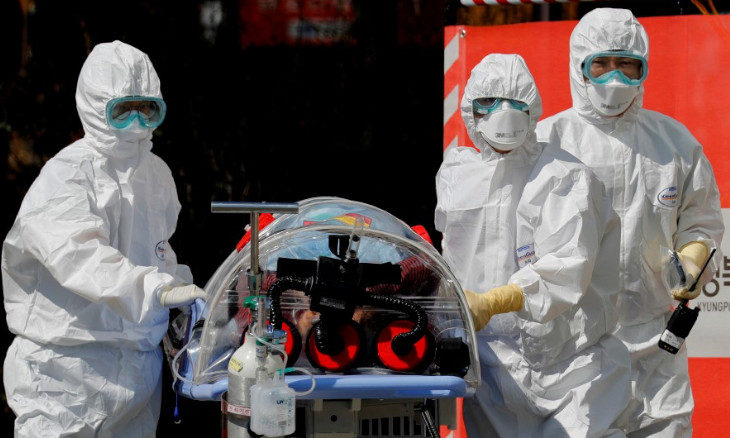What can Turkey learn from South Korea's fight against coronavirus?
Gökçe Başbuğ writes: That the coronavirus first became an epidemic in East Asia gave other countries time to prepare. However, it is clear that this time was not used wisely. Unfortunately, while travel bans and city quarantines were imposed, aggressive testing methods were not developed, and the public was not informed in a transparent manner. Fortunately, it is still possible for countries like Turkey that are at the beginning of this process to learn lessons from South Korea's experience and take steps accordingly.
Gökçe Başbuğ*
South Korea is among the countries that was hit earliest by the coronavirus. According to World Health Organization figures, as of March 1, South Korea had the highest number of people infected with the virus of any country other than China. Just 15 days later, the number of cases decreased, making it the 13th highest in the world, again excluding China. While the collective death toll in these countries reached 2,199, South Korea's was only 72.
Due to the countries’ different levels of transparency in reporting information and implementing testing, it's more appropriate to understand the extent to which the virus has spread within a country by looking at the growth rate in each country. The growth rate is determined by how often the number of cases in a country doubles. As of March 15, most countries that have reported cases of the virus have seen them double in four days or less.
For example, the number of cases in Italy increased 2.1 times from March 11 to March 15, rising from 10,149 to 21,157. On the other hand, it took South Korea 14 days to reach its growth rate. South Korea has been praised around the world for its fight against the coronavirus. During a recent emergency press conference, U.S. President Donald Trump mentioned South Korea numerous times. So how did South Korea manage this crisis, and what can we learn from this?
Having gained great experience from dealing with the MERS outbreak and due to the leadership of President Moon Jae-In, a former activist and human rights lawyer, apart from restricting travel from the Hubei province of Wuhan in China, South Korea did not ban travel from any other country, including from the rest of China. It did not impose quarantines and did not restrict the movement of people. Instead of these precautions, they engaged in aggressive testing for the virus.

Thousands of students from China studying in South Korea returned to school from their home country for the spring semester. These students were isolated in their dormitories. Despite the lack of travel bans, South Korea imposed a special procedure for people coming from four countries in Asia and six in Europe. This procedure involved taking their temperature and recording their contact information and address of where they were staying in South Korea.
President Moon Jae-In quickly mobilized a testing apparatus, which involved four companies producing tests and quickly testing the public. At its height, the country was testing 20,000 people a day for the virus. The results were determined at 96 centers throughout the country. Presently in South Korea, both those who show symptoms and those who do not are able to request to be tested.
South Korea's Ministry of Health established a hotline operating in seven different languages. People showing symptoms were requested to call this hotline before going to the hospital. Authorities went to their homes, and based on their conditions, they administered a test or took them to the hospital, thereby preventing people with symptoms from spreading them to others.
Those with positive results were asked with whom they had recently been in contact with and where, and based on this, additional steps were taken. For example, one patient who tested positive had gone to a large shopping mall, and that mall was closed down for an entire weekend and disinfected. People close to those who had tested positive were also tested, based on whether or not they were showing symptoms. This enabled the disease's path to be tracked while those testing positive were treated. This ensured that the death toll remained at only 75 as of March 16.
The entire process was also conducted in a completely transparent manner. The Ministry of Health shared information with the public regarding how many people were tested every day, how many tested positive, the number of people under quarantine, how many people had been sent to the hospital, and the number of those who died. Information was even shared regarding what neighborhoods the disease had been found in, and updated map applications enabled people to avoid those areas.
Masks and disinfectant hand sanitizer were distributed on public buses, and it became required for those boarding buses and metros to wear masks. Crowded street events were banned, while sporting and entertainment events were cancelled. Churches were requested to close on Sunday for mass. Officials with thermometers were appointed to offices, schools and public institutions to take the temperature of everyone in the building.
Managers were assigned to offices for the purpose of preventing and controlling the virus. These managers would monitor the symptoms of employees and take their temperature twice a day. They also organized awareness workshops and were responsible for disinfecting common areas and furniture.

People who were hospitalized were given regular access to psychiatric care, while all of those ill with the virus in the hospital were granted free access to watch South Korean television shows and films.
That the coronavirus first became an epidemic in East Asia gave other countries time to prepare. However, it is clear that this time was not used wisely. Unfortunately, while travel bans and city quarantines were imposed, aggressive testing methods were not developed, and the public was not informed in a transparent manner. Some leaders even refused to take this epidemic seriously and portrayed it as a political game being played by their opponents. Fortunately, it is still possible for countries like Turkey that are at the beginning of this process to learn lessons from South Korea's experience and take steps accordingly.
*Asst. Prof., Sunkyunkwan University, Seoul
